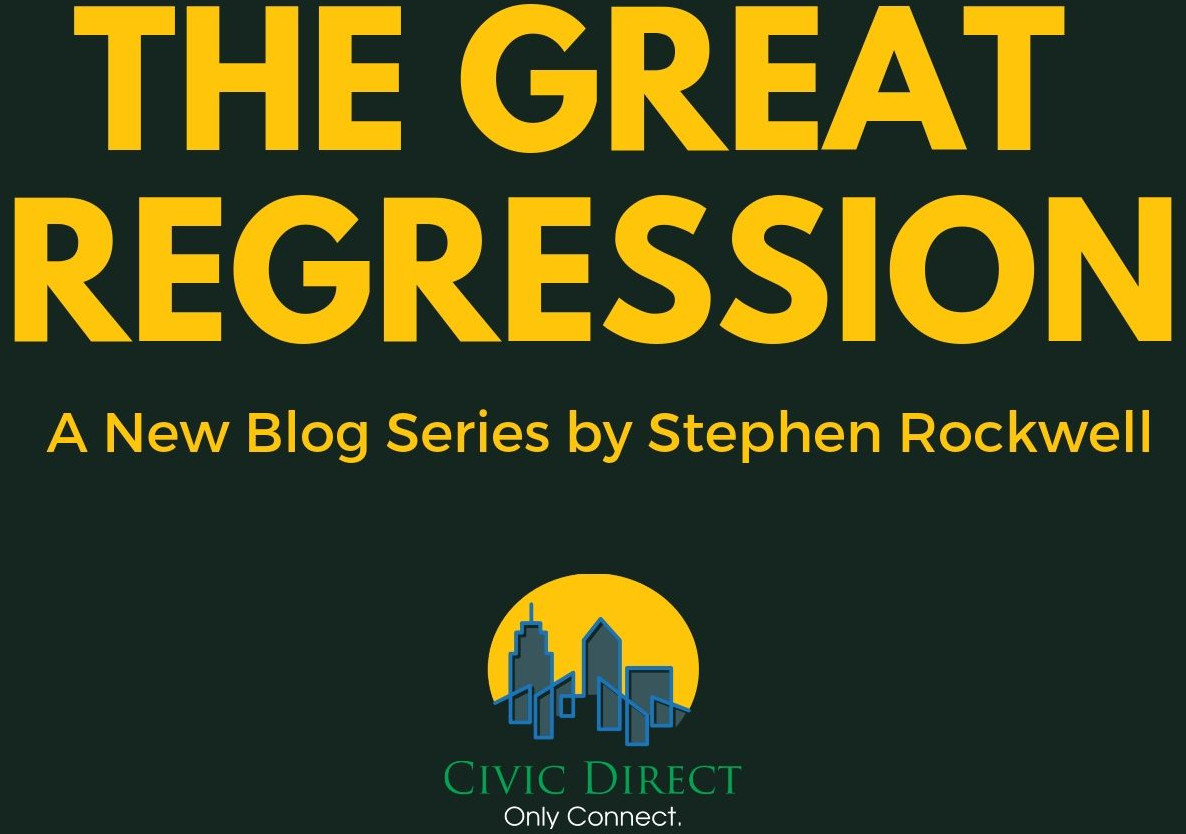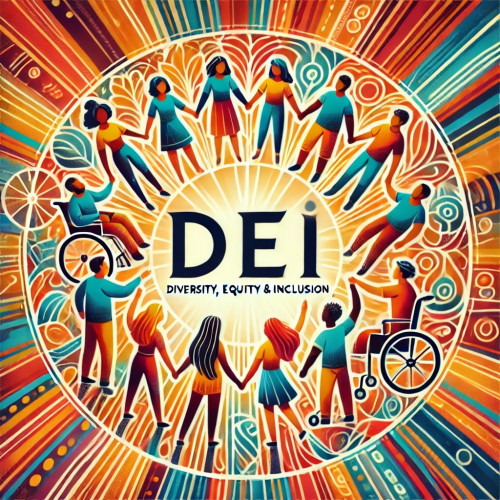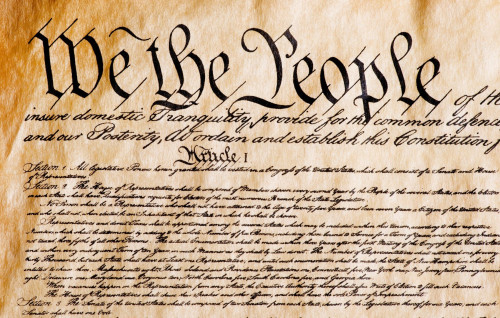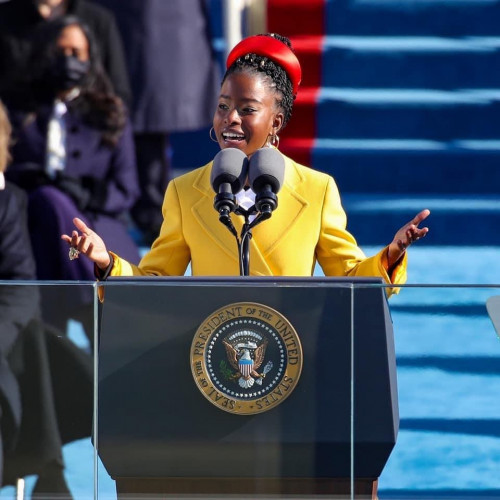- · 18 friends
- · 18 followers

The Great Regression - Part 2 - Our Jagged Progress on Racial Justice
Part 2 in a Series. Click here for Part 1.
Racism pervades American history as its immoral underbelly, casting aspersion on so many deservingly proud accomplishments. The US Constitution is probably the greatest system ever devised for balancing power in a government as to counteract the tendency for increasing power in one person or one group of people. The founders had first hand experience with totalitarianism and understood the human condition well. Those who initially get even a small taste of control over the lives of their fellow human beings, tend to seek ways to continue and maximize that power. Yet, in this very same document that represents such genius, the Constitution also contains an unmistakeable evil, declaring an entire population not fully human because of the color their skin. The Constitution declared enslaved African as 3/5ths of a person for the purposes of population counting, but their slaveholding masters considered them as a good deal less than 3/5ths of a human being, choosing rather to hold them as property. Slavery is America's original sin, a sin whose repentance never fully materialized across periods of progress and retrenchment.
America's Uneven Progress on Racial Justice
Thomas Jefferson, like perhaps no other figure, embodies the American contradiction of meaningful, earth-changing progress coupled with a virulent racism that casts a long shadow over such accomplishment. The author of the Declaration of Independence posited the Enlightenment notion of fundamental human rights of life, liberty, and the pursuit of happiness forever shifting notions of the role of government and kicking off a centuries long expansion in our thinking about the inherent rights of human beings. Jefferson was also a slaveholder with whom no excuse can be made for being a product of his times. Indeed, he knew clearly the moral repercussions of the evils of slavery stating in a letter in 1820, "But, as it is, we have the wolf by the ear, and we can neither hold him, nor safely let him go. Justice is in one scale, and self-preservation in the other." Yet he made no change and died without resolving this moral conflict for himself or the nation.
Jefferson's grounding the nation's birth in human rights created a vital reference point for which to launch various movements for racial justice from abolitionism to the Civil Rights era. Almost 200 years after the Declaration was written, Martin Luther King Jr. led the march on Washington anchoring his entreaty for cashing the moral check inherent in Jefferson's articulation of the human rights rationale for the founding of the nation:
"In a sense we’ve come to our nation’s capital to cash a check. When the architects of our republic wrote the magnificent words of the Constitution and the Declaration of Independence, they were signing a promissory note to which every American was to fall heir. This note was the promise that all men, yes, black men as well as white men, would be guaranteed the unalienable rights of life, liberty, and the pursuit of happiness."
The Civil Rights movement at its apex in 1963 saw the passage of the Civil Rights and the Voting Rights Acts in the subsequent 2 years. The federal government continued intervention to end Jim Crow segregation in the South. Affirmative action policies were put in place to ensure fairness and anti-poverty legislation would seek to ease the economic burden of America's sordid history with African Americans. Such accomplishments seemed impossible only years before given the uneven progress on racial justice issues. Yet the Civil Rights movement was built on centuries of individual heroics and movements of African Americans fighting for their freedom.
The Civil War emancipated enslaved Africans from the bond of slavery after two and a half centuries of the institution. The abolitionist movement pressured Lincoln and gained political power in Congress. While reparations that could and should have been made were not, Reconstruction led to a tremendous amount of progress with African Americans taking roles in commerce and politics. When Reconstruction ended prematurely, the South fell into the familiar normalized racial violence to ensure that whites maintained total political and commercial power. Any African American refusing to acquiesce to Jim Crow, found themselves lynched, what we would call today a form of horrific terrorism using violence to engender fear.
The New Deal saw a set of programs meant to alleviate economic misery, many of which African Americans could participate. As a result, they abandoned the party of Lincoln for the party of FDR, despite the fact that the Jim Crow south was still largely Democratic. The nation made greater progress in the New Deal in clearly defining Jefferson's human rights as basic economic rights. Americans had a growing awareness about the plight of African Americans given their inclusion within these new economic compacts. Jim Crow segregation looked increasingly out of place with these new principles such as FDR's four freedoms. The contradiction was magnified by the United States' new found role of global superpower fighting racist Nazi's abroad while implementing many similar practices toward the black population on the homefront. The speed of change thereby picked up as Truman desegregated the military and fought off Southern Democrats seeking to maintain their "way of life." The Warren Supreme Court ruled segregation illegal in 1954 Brown vs. Board of Education. King's first foray into the becoming a Civil Rights leader was a year later in the Montgomery Bus Boycott. Within the next decade almost all legal structures for segregation and disenfranchisement came to an end. It is hard to overstate the accomplishments of the movement against incredible odd and power structure bent on using state and vigilante violence to crush it.
Centuries old social structures broke down the span of 20 years, but those who felt a loss from such forays into great equality did not disappear. Many did not end up ever accepting their African American neighbors as their peers. Our mythology is that since the apex of landmark Civil Rights legislation, the United States continued to make steady progress on racial justice. Such a narrative fits with our self-definition as Americans. However, we will see that the Great Regression includes a significant step back on racial justices issues. Though clouded by progress of individuals, systemic racism did not disappear into thin air and was used effectively by politicians to continue to cull racist votes and enact policies harmful to African Americans. Since the death of MLK, America has in fact been in a Great Regression on racial justice, happening in tandem with a retrenchment and unwinding of the progress made across a wide range of justice issues.
We'll track the stagnant and regressing progress on racial justice next.
#racialjustice #greatregression #newdeal #reconstruction #MLK #FDR #ThomasJefferson

- ·
- · Stephen Rockwell

- ·
- · Stephen Rockwell

- ·
- · Civic Direct
